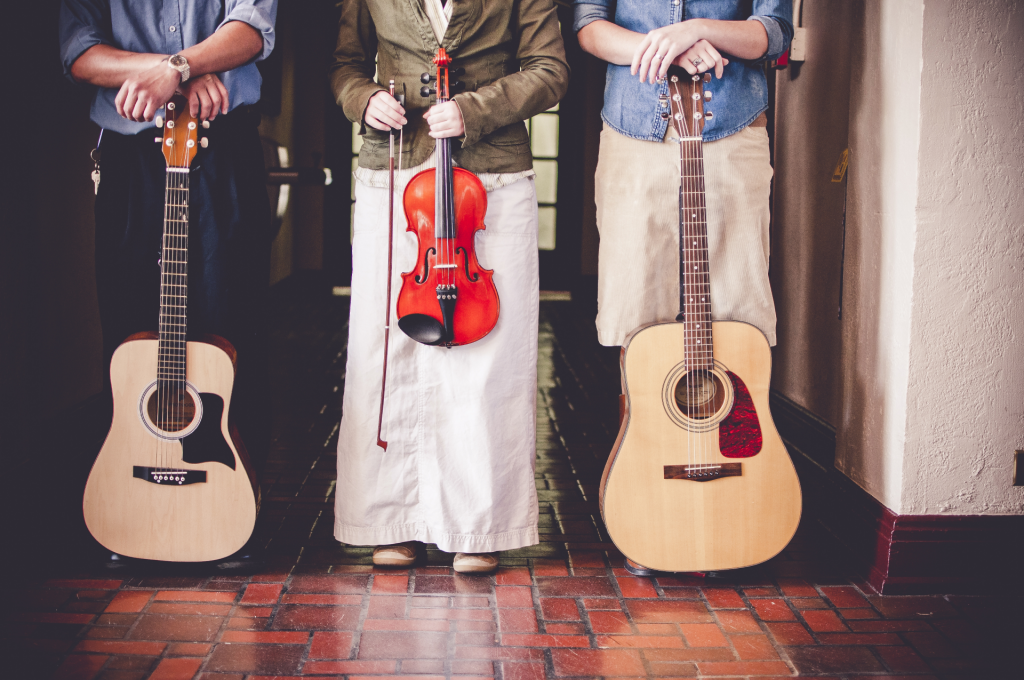Folk music, with its rich tapestry of storytelling and cultural expression, has long been a cornerstone of societal and artistic traditions worldwide. Rooted in the narrative of the common people, it has historically been a medium to reflect societal norms, struggles, and celebrations. In contemporary society, we are witnessing a fascinating revival of folk music, a renaissance that connects the past with the present and breathes new life into this timeless genre.
This revival is not just a resurgence of interest in traditional tunes; it’s a dynamic reinterpretation of folk music, making it relevant and resonant in today’s world. The genre’s simplicity and authenticity, often overshadowed by the glamor of commercial music, are finding a new audience, eager for music that tells a story and connects with deeper human experiences.
In this blog post, we will explore the journey of folk music – from its historical roots to its modern-day renaissance. We will delve into how digital media, fusion with other genres, and contemporary societal themes have contributed to its resurgence. This revival is not just a trend but a testament to the enduring power and relevance of folk music in capturing the human spirit.
Join us as we explore the rich history, current landscape, and future possibilities of folk music in the contemporary world, highlighting why this genre continues to captivate and inspire generations.
Historical Context of Folk Music
Folk music, steeped in the traditions and experiences of everyday life, has a history as diverse and rich as the communities it springs from. Historically, it served as the voice of the common people, a medium through which stories, traditions, and social commentaries were passed down through generations. Folk songs often originated in rural areas, emerging from the experiences of agricultural and working-class life. They were not written by known composers but evolved organically, becoming part of a collective cultural heritage.
In different regions of the world, folk music took various forms, reflecting the unique histories and landscapes of each area. In the American context, for instance, folk music was deeply intertwined with social and political movements, especially during the 20th century. It was a vehicle for expressing the struggles and hopes of the time, playing a significant role in the civil rights movement and the protest culture of the 1960s.
The traditional themes of folk music – love, work, struggle, and community – coupled with its acoustic simplicity, made it a genre that was easily accessible and widely relatable. Its emphasis on storytelling and cultural expression rendered it a powerful tool for preserving history and shaping social consciousness.
The historical context of folk music thus establishes it not just as a genre of entertainment but as a critical medium for cultural storytelling and societal reflection. Its roots in the past continue to influence its evolution and enduring relevance in contemporary society.
Decline and Revival of Folk Music
The decline of folk music’s popularity can be traced to the mid-20th century, as the rise of rock and roll and pop music began to dominate the airwaves and capture the public’s attention. The simplicity and acoustic nature of folk music seemed to pale in comparison to the electrifying and studio-enhanced sounds of these new genres. Over time, folk music increasingly retreated into the background, perceived by many as outdated or overly nostalgic, its relevance seemingly diminished in a rapidly modernizing world.
However, in recent years, there has been a significant revival of interest in folk music, a renaissance driven by a variety of factors. Part of this resurgence is attributed to a growing desire for authenticity and storytelling in music, qualities that are quintessential to folk. In an era dominated by heavily produced music, the raw, stripped-down sound of folk offers a refreshing contrast. Furthermore, the digital age has played a crucial role in this revival. Online platforms have provided unprecedented access to a wide range of folk music from around the world, allowing for greater discovery and exploration by new audiences.
This renewed interest has also seen contemporary artists incorporating folk elements into their music, creating a fusion that resonates with modern listeners while maintaining the genre’s traditional roots. In addition, folk music festivals and live performances have regained popularity, drawing crowds who are keen to experience the communal and unifying spirit of folk. The revival of folk music thus reflects a broader trend in society towards valuing authenticity, storytelling, and cultural heritage in an increasingly digital and globalized world.
Folk Music in the Digital Age
The digital age has significantly contributed to the revival and transformation of folk music, making it more accessible and diverse than ever before. In an era where streaming services and social media platforms are central to music discovery and consumption, folk music has found new avenues to reach a broader, more varied audience.
Digital platforms have democratized music distribution, allowing independent folk artists and smaller labels to share their work without the need for major record label backing. This has led to a surge in the variety of folk music available, showcasing styles from different cultures and regions that might have previously gone unheard. Listeners now have the luxury of exploring an eclectic mix of traditional and contemporary folk music from across the globe with just a few clicks.
Social media, in particular, has played a pivotal role in the resurgence of folk music. Platforms like YouTube, Instagram, and TikTok have become spaces where artists can share their music, connect with fans, and build communities. Viral folk songs and artists can emerge from these platforms, reaching audiences far beyond traditional folk circles. Furthermore, online forums and social media groups dedicated to folk music have fostered a sense of community among fans and musicians, facilitating discussions, collaborations, and the sharing of music.
The digital age has breathed new life into folk music, breaking down barriers of access and exposure. It has allowed this genre to evolve and flourish, connecting the past with the present and reaching new generations of listeners. The digital landscape continues to offer exciting opportunities for the growth and diversification of folk music in contemporary society.
Fusion with Other Genres
The contemporary revival of folk music has been marked by an exciting trend of fusion with other genres, breathing new life into its traditional melodies and themes. This blending of styles has not only broadened the appeal of folk music but also contributed to its evolution, creating a vibrant and diverse musical landscape.
Artists from various backgrounds are experimenting by infusing folk with elements of genres such as rock, pop, jazz, and even electronic music. This fusion has led to the creation of sub-genres like folk-rock, indie-folk, and electro-folk, offering listeners a fresh take on traditional folk sounds. For instance, the incorporation of electric instruments and contemporary beats into folk compositions has resulted in music that retains the narrative richness of folk while resonating with modern sensibilities and production values.
This genre-blending also reflects the globalized world we live in, where musical influences cross borders and cultures more freely than ever before. Musicians are drawing inspiration from folk traditions not just from their own cultures but from around the world, leading to a fusion of sounds that is both innovative and respectful of its roots.
The fusion of folk with other genres signifies a dynamic and creative approach to music-making in the 21st century. It showcases the adaptability and enduring relevance of folk music, proving that it can evolve and thrive in the ever-changing landscape of contemporary music. This trend of fusion not only enriches the genre but also invites a wider audience to explore and appreciate the timeless appeal of folk music.
Folk Music Festivals and Live Performances
Folk music festivals and live performances have played a pivotal role in the genre’s revival, serving as vibrant platforms for both established and emerging artists. These events are more than just musical showcases; they are cultural celebrations that foster a sense of community and connection among attendees.
Festivals dedicated to folk music, such as the Newport Folk Festival in the United States or the Cambridge Folk Festival in the UK, have gained prominence and popularity, drawing crowds from diverse backgrounds. These festivals offer a rich tapestry of performances, featuring a mix of traditional folk, contemporary adaptations, and genre-blending acts. They often go beyond music, incorporating workshops, storytelling sessions, and dance, providing a holistic folk experience.
Live performances in smaller, intimate settings like local cafes and community centers are equally integral to the folk scene. These venues offer a close, personal experience of folk music, where the audience can engage directly with the artists. Such performances often capture the essence of folk music, highlighting its storytelling nature and the personal connection it fosters between the performer and the audience.
Folk music festivals and live performances are crucial in keeping the spirit of folk music alive. They not only provide a stage for a wide array of folk styles but also play a key role in building and sustaining the folk music community. As venues for both preservation and innovation, these festivals and performances ensure that folk music continues to thrive and evolve in contemporary society.
Folk Music as a Vehicle for Social Commentary
Folk music has long been a powerful vehicle for social commentary, serving as a voice for political expression, social justice, and community storytelling. In its contemporary form, this tradition continues, with artists using the genre to address current issues and connect with audiences on a deeper, more meaningful level.
Modern folk musicians often draw inspiration from pressing social and political themes, crafting songs that reflect on issues such as climate change, social inequality, human rights, and political unrest. These songs carry forward the folk tradition of storytelling, but with narratives that resonate with today’s global challenges. The beauty of folk music as a medium for social commentary lies in its ability to humanize these issues, presenting them through personal stories and emotional appeal.
This aspect of folk music not only raises awareness about important topics but also fosters a sense of solidarity and community among listeners. It connects people through shared concerns and aspirations, creating a space for dialogue and reflection. The communal nature of folk music, often performed in gatherings and festivals, further amplifies its impact as a tool for social engagement.
Folk music’s role as a vehicle for social commentary is as relevant today as it has ever been. It continues to be a powerful medium for artists to express their views, challenge societal norms, and inspire change, all while staying true to the genre’s roots in storytelling and cultural expression.
The Future of Folk Music
The future of folk music, while deeply rooted in its rich historical traditions, is poised to evolve in exciting new directions, influenced by the changing dynamics of contemporary society and technology. As we look forward, folk music is likely to continue its trajectory of adaptation and innovation, blending tradition with modern influences and technologies.
The digital age, with its ever-expanding tools and platforms, will play a significant role in shaping the future of folk music. Online streaming services and social media will continue to offer unprecedented access and exposure for folk artists, potentially leading to more diverse and globalized sounds within the genre. This digital landscape provides an opportunity for folk music to reach younger audiences, who are more accustomed to consuming music online, thereby ensuring its continued relevance and evolution.
Moreover, the growing awareness of environmental and social issues is likely to influence the thematic elements of folk music. As a genre historically aligned with social commentary and storytelling, folk music is well-positioned to reflect and respond to these global concerns, resonating with listeners who seek meaningful and thought-provoking content.
The future of folk music is one of vibrant growth and continual reinvention. While it will undoubtedly retain its core elements of storytelling and acoustic simplicity, its fusion with other genres, adoption of new technologies, and responsiveness to contemporary issues will ensure that folk music remains a dynamic and relevant force in the world of music.
To Sum It Up
In conclusion, the revival of folk music in contemporary society is a testament to the genre’s enduring appeal and adaptability. Rooted in the storytelling and communal traditions of the past, folk music has evolved to resonate with modern audiences, embracing new technologies and addressing contemporary issues. Its fusion with other genres has breathed new life into its traditional melodies, making it accessible and relevant to a broader audience.
Folk music festivals and live performances continue to be vital in celebrating and perpetuating this genre, offering spaces where communities can come together to share and experience the richness of folk traditions. These gatherings not only showcase the diversity within folk music but also strengthen the bonds between artists and listeners, fostering a sense of belonging and cultural continuity.
The role of folk music as a vehicle for social commentary remains significant, with modern folk artists using their craft to voice opinions on current social and political issues. This aspect underscores folk music’s capacity to not just entertain, but to enlighten and inspire.
Looking ahead, the future of folk music appears vibrant and dynamic. As it adapts to the changing landscape of the digital age and global society, folk music is poised to continue its evolution while staying true to its roots. The revival of folk music underscores its timeless relevance and its capacity to connect us across generations and cultures, reminding us of the power of music to narrate, unite, and uplift.




